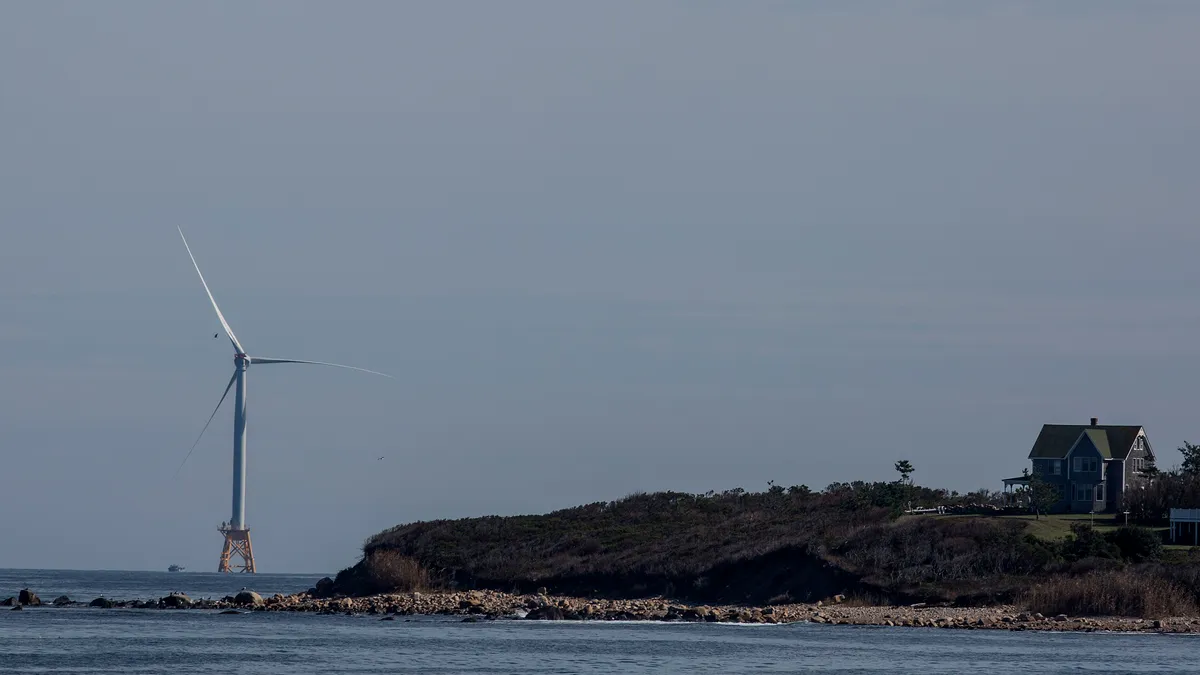Dive Brief:
- Eversource Energy, National Grid and Unitil have reached an agreement with Avangrid on terminating their power purchase agreements for the company’s 1,223-MW proposed offshore wind farm Commonwealth Wind, the Massachusetts utilities said this week.
- Avangrid, which requested the termination in December due to global economic headwinds like inflation, would pay the utilities a total of $48 million in penalties if the termination is approved by the Massachusetts Department of Public Utilities.
- Separately, Rhode Island Energy announced Tuesday that it would not move forward with a long-term PPA with Ørsted and Eversource for their joint offshore wind project, the 884-MW Revolution Wind 2, calling it “too expensive.”
Dive Insight:
In a release from Rhode Island Energy, the utility cited higher interest rates, increased costs of capital and supply chain expenses, and the uncertainty of federal tax credits as economic factors that made the project as proposed “too expensive for customers to bear.”
“We recognize some will be disappointed that we didn’t choose to move forward on negotiating this PPA, but that doesn’t mean we are abandoning our commitment to offshore wind in Rhode Island,” said Dave Bonenberger, president of Rhode Island Energy.
Avangrid’s subsidiary, Commonwealth Wind, cited many of the same factors as reasons that its original bid price for the project was no longer economically feasible.
The company said in its December filing requesting to terminate the PPAs that the price it bid into Massacchusetts’ third solicitation in September 2021 was “supported by then current and reasonably anticipated future economic conditions,” which remained stable until the PPAs were signed in April 2022, but the global economy “changed both dramatically and swiftly” after that in ways the company could not predict.
The best path forward, Commonwealth Wind said, is for it to rebid the generation capacity currently included in the PPAs “in [Massachusetts’] next solicitation under Section 83C,” the state’s law governing long-term renewable energy contracts.
“Commonwealth Wind would bid into that solicitation and offer Massachusetts a project with cost-effective pricing, a superior timeline for completion, and exceptional economic development opportunities,” the company wrote.
Bids for the state’s fourth offshore wind solicitation are due Jan. 31, 2024. Massachusetts is aiming to procure up to 3,600 MW, which would make this solicitation New England’s largest offshore wind procurement to date.
The termination agreement stipulates that Commonwealth Wind must pay the $48 million in fees to the three utilities within 15 days after the utilities receive final DPU approval. The developer agreed to pay National Grid $21.6 million, Eversource $25.9 million, and Unitil $480,000.
In its release, Rhode Island Energy said that over the coming weeks, it will work with the state’s Office of Energy Resources and Division of Public Utilities and Carriers “on additional ways to bring more offshore wind opportunities to the state that could offer more affordable pricing.”
Rhode Island’s failure to move forward with new offshore wind development is “extremely disappointing,” James Crowley, a Conservation Law Foundation attorney, said in a news release.
“Ramping up the development of clean energy is a major response to the crisis we’re facing, and the state needs to get moving,” Crowley said.














